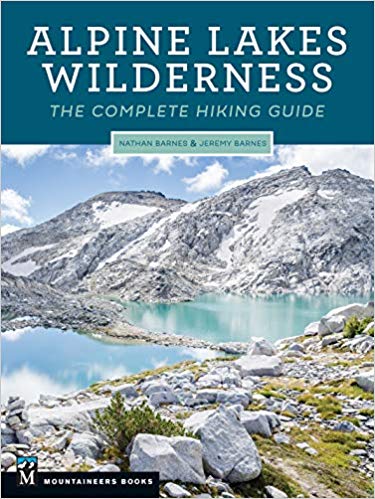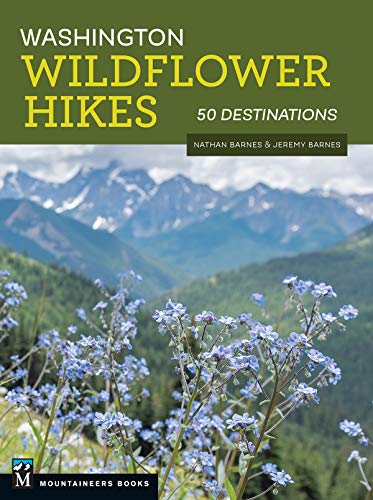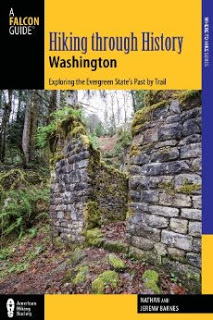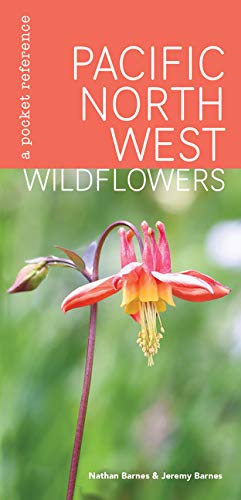Wilkeson Townsite
Take a walk though Carbon River history on this tour through the Wilkeson Townsite.
Total Distance: 1.1 miles
Total Ascent: 50ft
Highest Point: 850ft
Total Ascent: 50ft
Highest Point: 850ft
Difficulty: Easy
Our Hiking Time: 1h
Required Permit: None
Our Hiking Time: 1h
Required Permit: None
To get there, take I-5 South to I-405. From I-405 take SR 167 south toward Auburn. In 20 miles take the SR 410 Exit toward Sumner/Yakima. Follow SR 410 for a little over 11 miles to Mundy Loss Road. Take a right and continue for 1 mile to SR 162. Take a left and follow SR 162 as it merges into SR 165 and continue for 3 miles into Wilkeson. Turn left onto Railroad Avenue continue for .2 miles to a small parking lot on the right. View Google Directions >>
The tour begins with a visit to the coking ovens, located just off Railroad Avenue in Wilkeson. The ovens sit in a small parade ground that also contains a long section of railroad track that is used during Wilkeson’s annual railroad handcar races. The battery of ovens are now covered in vegetation, but there is easy access to the interior of a number of the ovens, as the brick-lined ceilings have begun to collapse over time. Once you’ve explored the ovens, follow the faint indications of trail that parallel Railroad Avenue and enter a lightly wooded area. After a short distance you’ll encounter a large concrete structure covered in grafitti. Our research didn’t turn up anything that told us what was once here, but we assume it has some connection to the nearby Skookum Slope Mine that was re-opened for a few years in the 1940s.
Press onward following Wilkeson Creek to a large clearing. On the far side of the clearing you find easy access to Railroad Avenue and the entrance to the Wilkeson Sandstone Quarry. While it’s private property and visitors are not allowed without prior permission, there is nothing wrong with walking up to the entrance taking a peek at the equipment and the massive stone cutting operation that has been chugging along for over 100 years. When you’re ready, double back the way you came and return to the concrete structure. From here, follow the trail up a small berm to find views of the Skookum Slope Mine at the end of a pond on the opposite site of Wilkeson Creek. Water still spills out of the grated mine entrance, and the small concrete foundation in the middle of the pond is the fan house that once pumped air into the mine shaft. Continue following the trail up the berm and notice how out of place the hill feels. That is because it’s not a hill at all, but rather a massive pile of slag and leavings from the mine that nature has since reclaimed. Soon the trail swings downhill and deposits you back at the coking ovens and the start of your tour.
Short and sweet, this hike works best during the winter months, when there will be a minimum of vegetation to get in the way and most other trails are covered in deep snow. The hike is also easily combined with other nearby townsites such as Melmont or Fairfax, which can help fill out a full day of off-season hiking. If you’re looking for an interesting walk through history, we recommend checking Wilkeson out sometime in the near future.
As the coal became more difficult to access, enterprising prospectors found extensive sandstone formations and built a quarry that began in 1886 and that still operates today. Wilkeson sandstone has been used in buildings all over Washington, perhaps most prominently on the exterior of state capitol. The town was officially incorporated in 1909.
Press onward following Wilkeson Creek to a large clearing. On the far side of the clearing you find easy access to Railroad Avenue and the entrance to the Wilkeson Sandstone Quarry. While it’s private property and visitors are not allowed without prior permission, there is nothing wrong with walking up to the entrance taking a peek at the equipment and the massive stone cutting operation that has been chugging along for over 100 years. When you’re ready, double back the way you came and return to the concrete structure. From here, follow the trail up a small berm to find views of the Skookum Slope Mine at the end of a pond on the opposite site of Wilkeson Creek. Water still spills out of the grated mine entrance, and the small concrete foundation in the middle of the pond is the fan house that once pumped air into the mine shaft. Continue following the trail up the berm and notice how out of place the hill feels. That is because it’s not a hill at all, but rather a massive pile of slag and leavings from the mine that nature has since reclaimed. Soon the trail swings downhill and deposits you back at the coking ovens and the start of your tour.
Short and sweet, this hike works best during the winter months, when there will be a minimum of vegetation to get in the way and most other trails are covered in deep snow. The hike is also easily combined with other nearby townsites such as Melmont or Fairfax, which can help fill out a full day of off-season hiking. If you’re looking for an interesting walk through history, we recommend checking Wilkeson out sometime in the near future.
History
Back in the late 1870s, coal was discovered along the Carbon River and a small community began to form along a creek near the riverside. Among the residents of that community was Samuel Wilkeson, who served on the Northern Pacific Board of Directors and moved to Wilkeson in 1876. By the time the Northern Pacific Railway extended track from Tacoma to the creek in 1877, both the creek and the community were named Wilkeson, in Samuel Wilkeson’s honor. With the arrival of the train, coal production went into full swing. Coal was pulled from the ground and put into coking ovens to produce coke, which was (and still is) used as an industrial fuel. The coke would then be loaded onto trains and shipped to Tacoma for use.As the coal became more difficult to access, enterprising prospectors found extensive sandstone formations and built a quarry that began in 1886 and that still operates today. Wilkeson sandstone has been used in buildings all over Washington, perhaps most prominently on the exterior of state capitol. The town was officially incorporated in 1909.
Nearby hikes
Similar Difficulty
Similar Features












